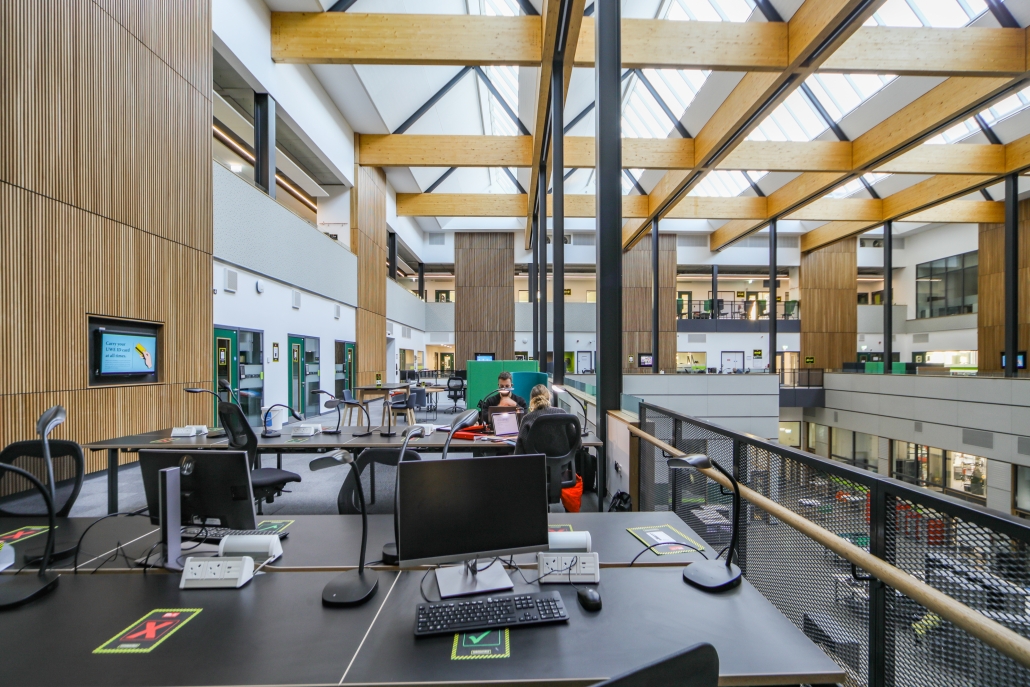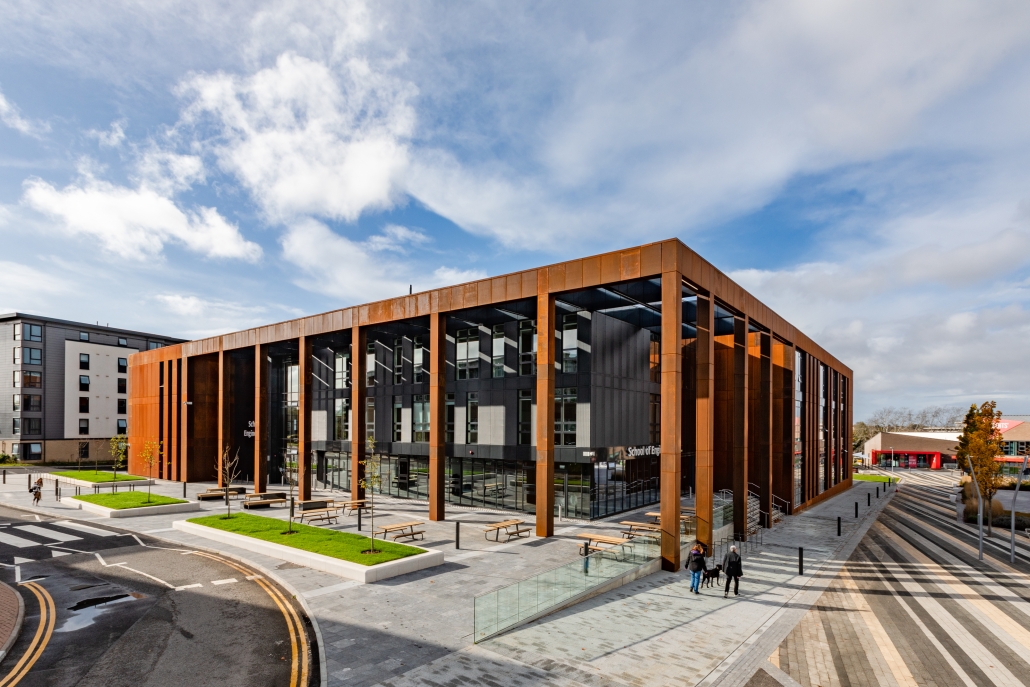Project Information
Procurement Type: Two stage
Form of Contract: NEC 4 Option A Design & Build
Contract Period: 83 weeks
Size: 8,650m2
BAM has built the new state of the art engineering block for the University of the West of England (UWE) on their existing, busy campus in Bristol, which remained live during the project. The new building provides teaching and research facilities for more than 1,600 undergraduate and post graduate students along with 100 academic and technical staff.
Facilities include engine test cells, wind tunnels and dedicated rooms for specific engineering disciplines such as composite manufacturing, machining and metrology.
The three storey building was constructed out of structural steel frame with in-situ concrete ground floor, precast concrete upper floors and stairs and a combination of Corten cladding and curtain wall as the exterior finish.
A full height atrium forms the entrance which was finished with glulam timber cladding.
The project had a challenging programme, with completion in 83 weeks. To help ease the programme we appointed one of our CAT 1 structural steel frame contractors early in the process. Included in their package was the supply and installation of the precast concrete and glulam timber cladding works and this eliminate the issues that arise with different contractors carrying out the works.
The project was designed in a 3D environment under BIM level 2 requirements thereby minimising design issues before manufacture. During the enabling works period a new site access was formed onto the campus ensuring the site was completely isolated from the rest of the campus mitigating any issues with site logistics and deliveries ensuring the site was secure and the university could continue to operate as normal.
The Challenge
The team worked together to successfully resolve a number of key challenges, notable examples include:
Bespoke Design – The client required a bespoke building that could cater for a diverse range of engineering subjects. Specific areas required very different physical properties, with each teaching space having a unique purpose that needed a bespoke design solution.
Noise / Vibration – Many of the ground floor engineering workshops generate high levels of noise and vibration.
Optimise functional learning space to create more opportunities for learning and a safe inclusive environment for students to flourish.











